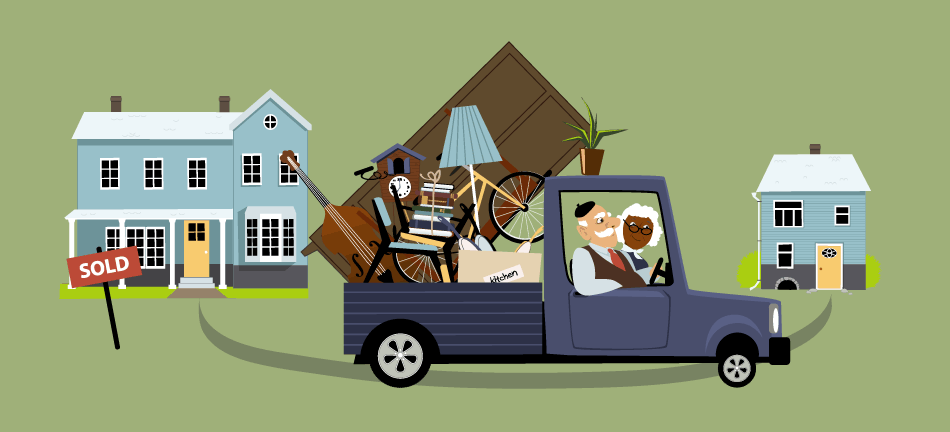Downsizing for Retirees or Empty Nesters

Your children have flown from the nest, or maybe retirement is not so far away. Do you still need all of the space your current home has? Or maybe the idea of selling and buying a smaller home and save the profit for a boost to your retirement income. Whatever the reason, many empty nesters and retirees are downsizing. Let’s look at these things to consider:
-
- Downsizing can be a huge change for most, and planning for it is the key. Talk with your partner, your family and friends, tell them of your thoughts, and have some of them help you start a Downsize Plan.
-
- Think practically when you’re thinking about what sort of house you’d like to buy. You don’t want to go so much smaller that you don’t feel at home.
-
- Do you want to stay in the general area you are currently in, or do you want to move across the country? Maybe you’d like to have an adventure and travel.
-
- Look at your budget and go through it very carefully. Even with a home sale, your new place could be in a more expensive area, with property taxes and higher utility costs. Choose carefully so you save more of the profit from the old house’s sale.
-
- We don’t like to think about aging, but one consideration you should be taking is that if this will be your last home, make sure it will work for you as you get older. In case of mobility issues later on, a single-story house that will be easier to maneuver around in, or one with a smaller yard for less maintenance is best when house-hunting.
-
- The thought of maintaining our landscaping can make us groan as we get older in more ways than one, so consider a condominium or townhouse to relocate to. Be sure to ask if there are extra maintenance fees in these communities.
-
- Once you make your decision, contact a realtor in the area with questions about the housing market, as they can assist you with figuring out how much your house would sell for, as well as finding a smaller and affordable home for you to buy or even consider a rental for a while.
-
- Once you decide to sell and relocate, start the first step of the moving process of going through your belongings, and deciding what you’ll have room for in a smaller home. This downsizing article from Sixty&Me.com has some extreme but practical advice to help you start this emotional task. - -Get the family involved if your children still have belongings stored in your attic or spare room.
-
- If the thought of cutting out so many of your belongings is too daunting, find a professional organizer who can help. Look for one that specializes in downsizing.
-
- You have probably acquired a houseful of furniture, and a smaller home means less space to place what you have now. Talk to family members who may want pieces that you have, sell some furniture, or donate practical items to a shelter or thrift store.
Preparing for the later years in life can be daunting. If you’re getting ready for retirement, or dreading the thought of the last child leaving home, downsizing and a new beginning can actually be something to look forward to. Be sure to share your housing concerns and desires with your real estate agent, who will do all they can to find the perfect home for you to make every moment enjoyable for you for years to come.
Courtesy of New Castle County DE Realtors Tucker Robbins and Carol Arnott Robbins.
Photo credit: debt.org









